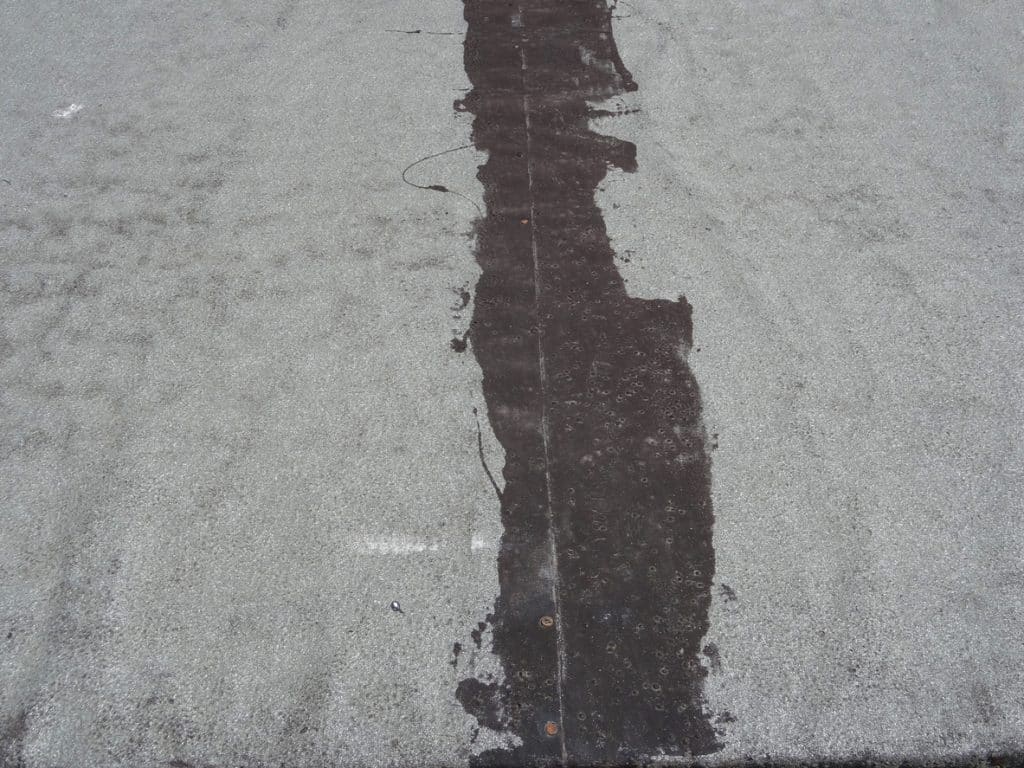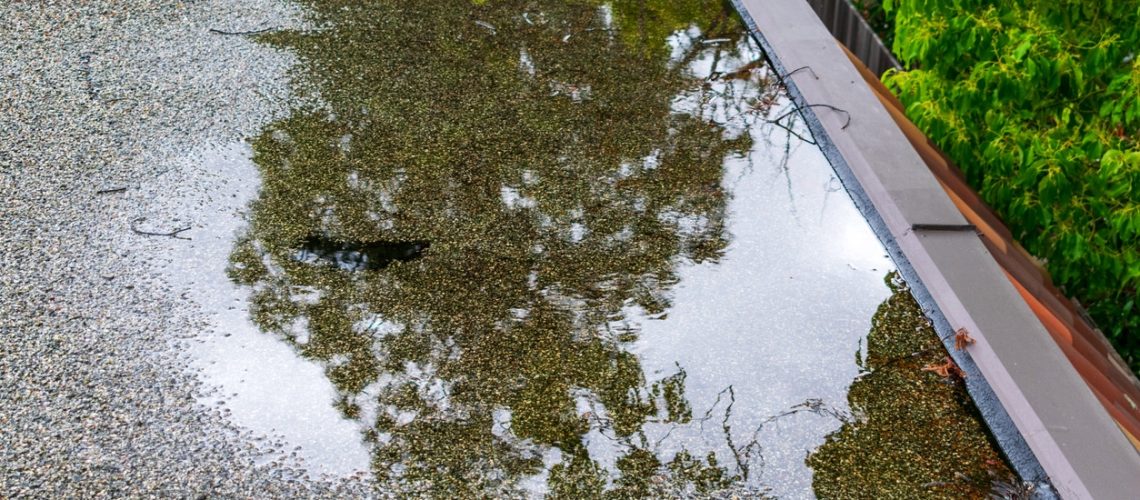If you own a building with a flat roof, you may be familiar with the challenges it presents, particularly when it comes to leaks. Flat roofing in Calgary can be prone to water intrusion due to its unique design. However, understanding where these leaks typically occur can help you take proactive measures to prevent and address them. Understand common areas where flat roofs leak so you know when to call a Calgary roofing company and protect your property.
Common Areas Flat Roofing in Calgary Get Leaks

#1: Roofing Membrane
The roofing membrane is the primary defence against water penetration on a flat roof. That’s why it’s important to inspect this crucial layer for any signs of damage, such as punctures, tears, or cracks. These vulnerabilities can allow water to seep into the underlying layers, leading to leaks. Regular maintenance and prompt repairs are essential to keep the roofing membrane intact and prevent moisture infiltration.
#2: Flashings
Flashings seal joints and transitions in a flat roof, such as around vents, skylights, chimneys, or parapet walls. These areas are particularly vulnerable to leaks as they create potential entry points for water. Over time, flashings may deteriorate, become loose, or develop gaps, compromising their ability to keep water out. Inspecting flashings regularly and properly sealing can help prevent leaks at these critical junctions.
#3: Drainage Systems
Flat roofing in Calgary relies on effective drainage systems to redirect water off the roof surface. Clogged or poorly maintained drains, gutters, and downspouts can lead to ponding water, which increases the risk of leaks. Debris, such as leaves, twigs, or dirt, can obstruct water flow and cause backups. Regularly clearing and maintaining your drainage systems is crucial to prevent water accumulation and potential roof leaks.
#4: Roof Penetrations
Flat roofs often have various penetrations, including pipes, vents, HVAC units, and electrical conduits. These penetrations require proper seals to prevent water from infiltrating around them. Over time, the seals may deteriorate or become damaged, compromising their ability to keep water out. Regular inspection and maintenance of these penetrations are imperative to keep an eye out for, including checking for cracks, gaps, or worn-out seals. Doing so can help identify and address potential leakage points.
#5: Roofing Materials & Seams
Flat roofs can be constructed using different materials, such as modified bitumen, EPDM, or TPO. Regardless of the material, the seams between individual roofing sheets or rolls are areas of vulnerability. Poor installation, aging, or extreme weather conditions can cause these seams to weaken or separate, allowing water to penetrate. Regular inspections and timely repairs of these seams can help maintain the roofing system’s integrity and prevent leaks.
As you can see, there are various areas where a leak can occur in any residential or commercial property with flat roofs. That’s why it’s vital to be equipped with the knowledge of where to look for these common leaks in flat roofs. By having a Calgary roofing company inspect regularly and address issues in the roofing membrane, flashings, drainage systems, roof penetrations, and roofing materials, you can prevent water intrusion and extend the life of your flat roof. Remember, proactive maintenance is key to keeping your property safe and protected from the challenges of flat roof leaks.
City Roofing & Exteriors consistently takes pride in serving Calgarians. At City Roofing, we understand the importance of customer satisfaction. We put safety, quality work and on time delivery as our top priority. We work hard to assist our customers in providing proper roofing systems to meet their budget and needs. We offer completed roofing services in Calgary and area on both residential and commercial projects. We guarantee that you will be satisfied with our work and recommend City Roofing as your roofing consultant and contractor. Give us a call at 403-608-9933 or send an email to [email protected].


